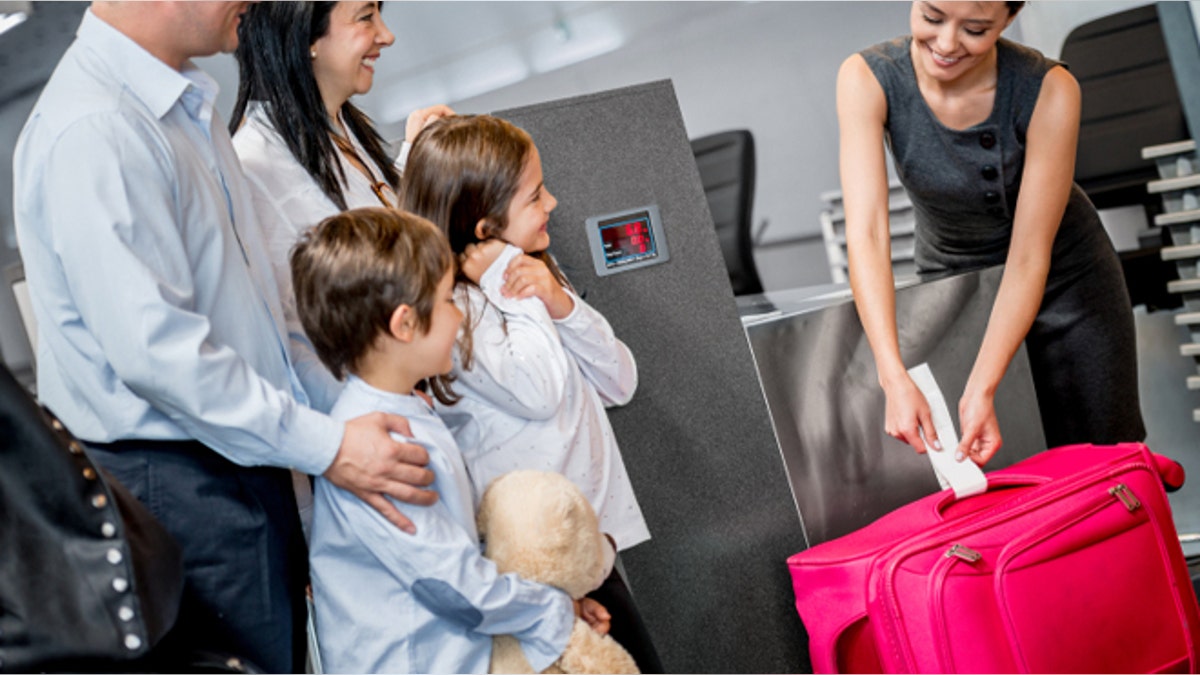
What parents of special needs children should know before traveling. (iStock)
Traveling on a plane can be difficult on any given day.
But taking a flight with an autistic adult or child can prove to be daunting, especially since many behaviors, such as diverting the eyes, avoiding touch, and repeating phrases that are heard or seen, can be misinterpreted or misunderstood by airline crew or security agents.
Many families simply avoid air travel for fear that a situation could unravel fast.
This week Donna Beegle and her autistic daughter Juliette, 15, made headlines after they were kicked off a United flight headed to Portland, Ore. because of the pilot did not “feel comfortable” with her on board after a disturbance in the cabin.
While certain safety rules apply, passengers with disabilities, including autism, cannot be denied travel under the the Air Carrier Access Act, which prohibits discrimination on the basis of disability. The Department of Transportation a rundown of the rights of all disabled passengers --whether they are unable to walk or stand, have metal implants, require special medication or intellectual disabilities like autism --and the obligations of airlines.
Traveling with an autistic child or guardian is possible, but it requires some preparation and planning.
Where to start
Most airlines have a clearly stated policy on their websites for disabled passengers, but services can differ.
For example, Delta has a Disabilities Assistance Line. American Airlines offers accommodations for autistic passengers that include seating assignments, assistance enplaning or deplaning, and making flight connections between gates.
"Our agents are trained to help passengers with a variety of disabilities," Andrea Huguely, spokeswoman for American told FoxNews.com. "But if you know you need something, it always recommended to request it ahead of time with one of our reservation specialists."
The best thing to do is to call the airlines ahead of time and let them know your family member has special needs.
Ask whether any accommodations are available, like bulk-head or pre-boarding seating. Southwest's "Early Bird" boarding is a good option for an additional $10 per ticket, per flight.
In addition, many major airports --such as Newark, Detroit, LA and Seattle -- have rehearsal programs to help autistic passengers navigate potentially stressful travel procedures, like searches at security check points. In conjunction with groups such as Wings for Autism, Blue Horizons for Autism and Wings for All -- these programs provides families with the opportunity to practice entering the airport, obtain boarding passes, go through security and board a plane.
Also, keep in mind that despite a person's disabilities, your child or guardian cannot skip security. Transportation Security Administration airport personnel are trained to deal with autistic passengers -- what they look like, and how to recognize and respond to families. Most will be understanding, especially if they know ahead of time that someone is autistic.
Plan the trip
When booking air travel, make sure to allow more than enough time between connecting flights to navigate unfamiliar terminals and clear customs smoothly.
Before heading to the airport make sure you have the proper identification. Air travel regulations require that adult passengers, age 18 and over, show a U.S. federal or state-issued ID -- such as a driver's license, state ID card, or U.S. passport --that contains the following: name, date of birth, gender, expiration date, as well as a tamper-resistant feature in order to be allowed through the checkpoint an on to flights.
Also, although not always required, IndependentTraveler.com recommends traveling with a doctor’s note or phone number in case of emergencies.
Have a lot of distracting games, books, toys or DVDs packed in your carry-on. If your child or guardian is sensitive to loud sounds, bring noise-cancelling headphones. Pack a change of clothes in case of spills.
There are plenty of free trip planning checklists and resources for autistic family members to help prevent further problems down the line.
In case of emergency
Make sure you make plan for delays. Managing a one hour delay can be different from a multiple-hour delay or a complete cancellation. Prepare you child or guardian traveling for what's ahead, and in case that things fall apart, have emergency contacts, numbers for local doctors and cash on hand.
And remember to be polite and remain calm. Those with autism pick up on the stress of their caregiver. While it is impossible to foresee every imaginable emergency, there are a few things parents may try to do before traveling to reduce the likelihood of making a problematic situation worse.
